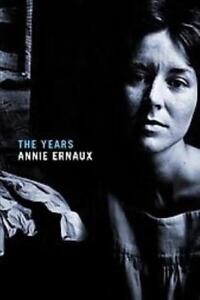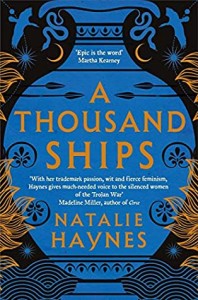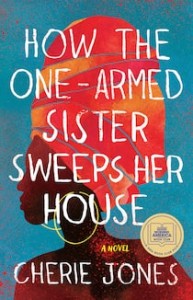
Writing guru Donald Maass—writer, agent, and writing teacher—reminds us to include what’s going on in the world in our stories, partly because our characters will probably be thinking about current events and reacting to them. Mostly, though, because including specific details and big-picture events helps make the world of our story seem real to the reader.
In this book, Ernaux has gone further, focusing on the larger life of a society and placing the life of one woman within that.
. . . the idea had come to her to write “a kind of woman’s destiny” set between 1940 and 1986.
Ernaux’s genre-bending experiment adds a new dimension to the field of life writing. She goes beyond memoir—a subjective view of events in the author’s personal life—and autofiction—a reexamination and fictionalisation of those events—to create a new form that melds both of these with sociology and history. She has captured the sweep of the lifetime simultaneously with that of a person and a generation.
Everything will be erased in a second. The dictionary of words amassed between cradle and deathbed, eliminated. All there will be is silence and no words to say it. Nothing will come out of the open mouth, neither I nor me. Language will continue to put the world into words. In conversation around a holiday table, we will be nothing but a first name, increasingly faceless, until we vanish into the vast anonymity of a distant generation.
Time is the only narrative structure in this collage of private memories, public events, photos, songs, brand names, television, advertising, headlines. There’s no plot, no protagonist, no story question. Instead, we are given “abbreviated memories” spun together, some personal and some common.
It will be a slippery narrative, composed in an unremitting continuous tense, absolute, devouring the present as it goes.
I especially like the way Ernaux, looking back on a long life, refers to the past as a series of “palimpsests.” It’s an effective way to describe the veils that layer over each other as we try to recall how we were.
At first, I felt overwhelmed by the flow of historical events, popular culture, and experiences. I could barely grasp each fragment before it was replaced by another, perhaps because I was listening to the audio version, beautifully performed by Anna Bentinck. Eventually, though, I began to recognise how artfully they had been assembled to create a continuous narrative.
More importantly, I came to feel a part of the story, engrossed in the passing decades and fascinated by the ways my own life interacted with this collective story, merging and sliding apart, only to merge again and again slip away. I began to feel as though she were telling me the story of my own life, with occasional diversions.
Perhaps I should have first mentioned the unique point of view. Unlike most life writing, there is no “I” in the book. Instead—and fittingly for the story of a generation—it is narrated by “we,” as though by a chorus of voices. Apparently, in the original French version, the pronoun used is “on” which is the generic he/she that English is lacking, though it could be translated as “one.” The translator, Alison L. Strayer, has chosen instead to use “we,” which works brilliantly to capture the voice of the collective sections.
Some parts are about a specific woman, spoken of as “she.” As she nears the end of life, she begins to write this book to defy death’s erasure.
By retrieving the memory of collective memory in an individual memory, she will capture the lived dimension of History. This will not be a work of remembrance in the usual sense, aimed at putting a life into story, creating an explanation of self. She will go within herself only to retrieve the world, the memory and imagination of its bygone days, grasp the changes in ideas, beliefs, and sensibility, the transformation of people and the subjects that she has seen.
I plan to delve into other books by Ernaux, winner of the 2022 Nobel Prize in Literature. I can see why this particular book was longlisted for the 2019 International Man Booker Prize. Without getting into the controversy over whether it qualifies as fiction (a requirement for the Booker), I have to rank it high on my list of best books ever. To reach into my own past: it blew my mind.
Have you read a book by Annie Ernaux? What did you think about it?

